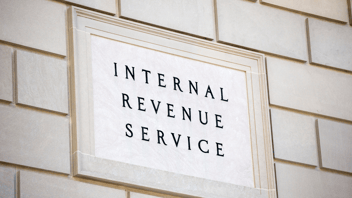What Does Tax Exemption Mean?

Tax exemption is a term that’s used a lot, and sometimes the definition seems cloudy. So what does tax exemption really mean? Do you know what qualifies as a tax-exempt business, or which purchases may be tax-exempt?
Let’s consider what tax exemption means and how it may affect your business operations.
 TAX EXEMPT BUSINESSES
TAX EXEMPT BUSINESSES
In the most simple of terms, tax exemption means that you have the right to not pay certain taxes. This exemption does not apply to taxes across the board, but to certain types of purchases.
Related: 10 Everyday Business Purchases That Are Tax-Deductible
 OTHER TAX-EXEMPT ORGANIZATIONS
OTHER TAX-EXEMPT ORGANIZATIONS
To qualify for tax-exempt status, an organization must meet stringent requirements. Through Section 501(c)(3), the IRS allows some charitable organizations to file for tax exemption. This is in accordance with Code section 170, which allows them to receive tax-deductible contributions from donors.
To qualify as an eligible 501(c)(3) tax-exempt organization, you must meet the following requirements:
- Follow all the guidelines outlined in section 501(c)(3)
- Have a charitable purpose or be a religious group, scientific organization, educational organization, or literary organization
- No earnings should be related to an individual person or private stakeholder in the organization
- No political affiliation (Tax-exempt non-profit organizations must not participate in political campaigns or attempt to influence local, state, or federal legislation)
In addition to 501(c)(3)s, the IRS recognizes a few other types of organizations as eligible for tax-exempt status. These are:
- Social Welfare Organizations, 501(c)(4) status
- Additional nonprofit organizations under Section 501
 BENEFITS OF TAX EXEMPTION
BENEFITS OF TAX EXEMPTION
Tax-exempt organizations are exempt from paying federal income tax, sales tax, and property tax.
Non-profit organizations are still obligated to pay Social Security and Medicare taxes, as there is no exemption for these contributions.
Additionally, many states charge nonprofits sales tax if they collect income on a good or service that is separate from their original, established purpose.
Related: What's The Difference Between Tax Avoidance And Tax Evasion?
 HOW TO FILE FOR TAX-EXEMPT STATUS
HOW TO FILE FOR TAX-EXEMPT STATUS
If you believe that your non-profit organization meets the requirements for tax-exempt status, the IRS provides an overview of what to do.
The process includes identifying the correct forms, attesting to your qualifications as a non-profit organization, and filing all of the forms in the permitted time frame.
You will also need to follow any state requirements for non-profits as well.
CHALIFF + ASSOCIATES: BOOKKEEPING FOR SMALL BUSINESS & NON-PROFIT ORGANIZATIONS
Because of their tax-exempt status, non-profit organizations fall under strict scrutiny. It’s important for all businesses and organizations to keep accurate and detailed bookkeeping records, but especially non-profit organizations.
If all this sounds like a lot to manage— in addition to managing your business or nonprofit— don’t worry! We understand that business owners and organization leaders don’t want to waste a single dime or minute of time.
That’s why at Chaliff + Associates, we crunch the numbers so you don’t have to! To find out how we can help your business or organization, schedule a free consultation today!





